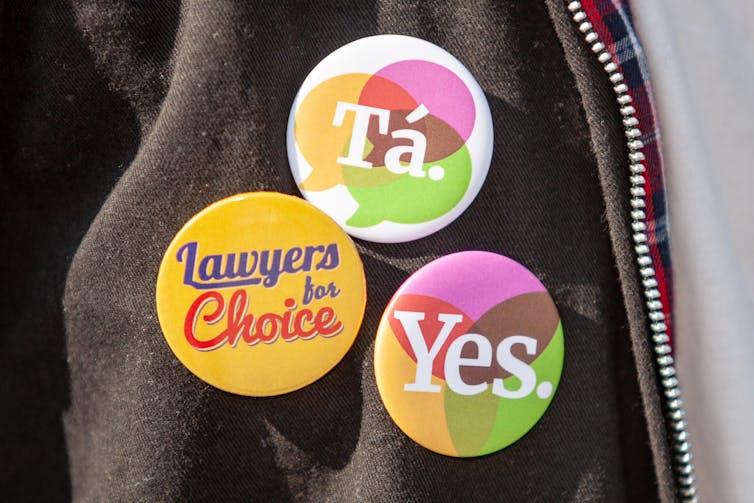A woman imprisoned for having an abortion – an expert on what UK law actually says and what needs to change

[ad_1]
Many people assume that because abortion is relatively available in England, it is not a crime. The fact that the woman has now received a 28 months imprisonment Taking abortion pills after the legal period indicates the error of this assumption.
Abortion remains criminal law to some extent in almost every country worldwide, although it is a relatively safe and common procedure. Laws can criminalize pregnant women, health care providers, or anyone who assists a woman in having an abortion. Judgment in Poland on the activist Justyna Widerzynska is one example. In March 2023, she took eight months of community service to help an abortion seeker.
The 28-month prison sentence for the 44-year-old mother of three in England reflects the desperate need for a change in the law, in the form of decriminalization.
In England and Wales, abortion is legal when it is performed by a registered medical practitioner, authorized by two physicians, and meets certain conditions, such as risk to physical or mental health or risk of fetal impairment. Abortion can only be performed after 24 weeks of pregnancy in very limited circumstances.
the Abortion Act 1967 It defines cases in which abortion is not a criminal act, and sets limits on the period of pregnancy that can be carried out. the The act has been written In response to health care providers’ concerns about unsafe abortions on “clandestine streets”, not out of concern for women’s bodily rights or autonomy.
Legislators did not want to make abortion available on demand, so the law sections 1861 Offenses Against Persons Act The criminalization of abortion has not been repealed. Articles 58 and 59 criminalize the giving or supply of drugs or the use of instruments to perform abortions. The penalty for these crimes is life imprisonment.
While the Abortion Act 1967 applies in Scotland, the Offenses Against the Person Act does not. There, abortion is a common law crime, developed by case law.
The latest trial is no anomaly. And in the past eight years, the police in England and Wales Have an investigation At least 17 people have had their abortions carried out outside the scope of the law. The legacy of the 1861 Act as a law from the Victorian colonial era is still felt globally, and is still in effect in countries such as The Gambia, Malawi and Jamaica.
Decriminalize abortion
Northern Ireland is the only region in the UK where abortion is common Not criminal. The 1967 Act was never extended to Northern Ireland.
After years of activist lobbying and international investigation by the UN Committee on the Elimination of Discrimination against Women, Westminster repealed Sections 58 and 59 of the Offenses Against the Person Act in 2019 – but only in Northern Ireland. the The Abortion (Northern Ireland) Regulations 2020 Now control access to abortion.
But while the law in Northern Ireland is now more liberal, the issues remain Access to abortion services. Healthcare providers have had to organize themselves to provide medical abortion services, rather than receive government support, and people seeking surgical abortions still have to travel to England.

Sean Harkin / Scientific
the Global Health Organization (WHO) f international human rights bodies They recommended, at the very least, that abortion be removed from the criminal code and decriminalized worldwide.
WHO defines this as “the complete decriminalization of abortion for all relevant actors: removing abortion from all penal/criminal codes, not applying other criminal offenses (such as murder and manslaughter) to abortion, ensuring that there are no criminal penalties for abortion, assisting, providing information about, or providing abortion.
This approach recognizes that criminalizing abortion does not prevent abortion, nor does it protect people from having unsafe abortions. What it does do is impede access and influence how people who perform abortions are viewed. higher levels of stigma It is often seen in areas that have stricter abortion laws.
The removal of abortion from the criminal code does not mean that it is not regulated, but simply that it is controlled by other health procedures. The Northern Ireland case shows that there is nothing to prevent Westminster from repealing Sections 58 and 59 of the Offenses Against the Person Act. This last issue should make it a politically pressing issue.
[ad_2]
Source link





